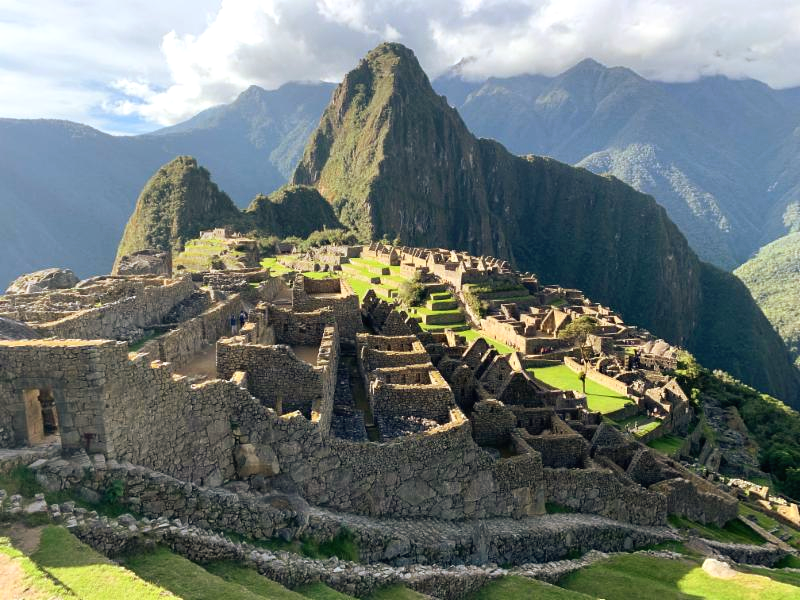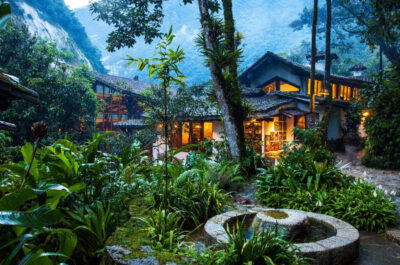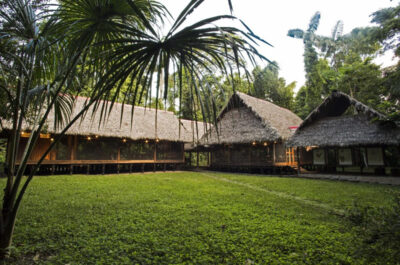Through the process of pyrolysis, in which the waste is decomposed at high temperatures without oxygen, seven tons of trash is processed per day, generating bio-coal, a natural fertilizer that will be used to restore the Andean cloud forest.
NEW YORK – Inkaterra, Peru's leading hotel group in sustainable tourism and hotel development, partnering once again with beverage distribution company the AJE Group, has succeeded in making Machu Picchu Pueblo the first city in Latin America to manage 100% of its solid waste.
Continuing their initiatives for the conservation and environmental care of Machu Picchu, AJE Group and Inkaterra presented the first Organic Waste Treatment Plant to the city. Through the process of pyrolysis, in which the waste is decomposed at high temperatures without oxygen, seven tons of trash is processed per day, generating bio-coal, a natural fertilizer that will be used to restore the Andean cloud forest and contribute to the agricultural productivity of Machu Picchu.
"We are very happy to be part of this change in the city of Machu Picchu and to be able to announce that, with this new plant, the circle of sustainability for which we have been working for three years is closing. Machu Picchu officially becomes a 100% sustainable model city in Latin America," said Jorge Lopez-Doriga, AJE Group's Executive Communications and Sustainability Director.
"The strategic alliance between Inkaterra, the AJE Group and the Municipality of Machu Picchu aims to change perception of our wonderful city into a sustainable destination and become an example of management for ecotourism worldwide. We have managed to awaken the ecological conscience of the local community, which now segregates waste from homes and establishments. Today, we present an innovative technology that will contribute to traditional agriculture and help restore the Andean cloud forest in Machu Picchu," added Jose Joechlin, Inkaterra's Founder and CEO.
Alongside the Organic Waste Treatment Plant, Inkaterra and the AJE Group previously delivered a Plastic Compactor Plant to SERNANP which will be used to recycle trash found along the Inca Trail, the most famous trekking route in South America. The plant was donated in 2017 and prevented the ruins of Machu Picchu from entering UNESCO's list of Heritage at Risk. Currently, 14 tons of polyester plastic are processed daily in this plant.
In 2018, a Biodiesel and Glycerin Plant was inaugurated at Inkaterra Machu Picchu Pueblo Hotel. By processing used vegetable oil from Machu Picchu's homes, lodges, hotels and restaurants, 20 gallons of biodiesel are produced daily from nearly 6,000 liters of used oil a month. The glycerin obtained in the process of making biodiesel is also used by the Municipality to clean the stone floors, thus replacing chemical products. These cumulative efforts to turn the city of Machu Picchu into a model of global sustainability won the Peruvian "Lideres + 1" prize and, in Germany, the prestigious "Die Goldene Palme" award in the category for Responsible Tourism.
Tatiana is the news coordinator for TravelDailyNews Media Network (traveldailynews.gr, traveldailynews.com and traveldailynews.asia). Her role includes monitoring the hundreds of news sources of TravelDailyNews Media Network and skimming the most important according to our strategy.
She holds a Bachelor's degree in Communication & Mass Media from Panteion University of Political & Social Studies of Athens and she has been editor and editor-in-chief in various economic magazines and newspapers.









































































































































































































